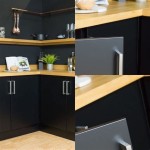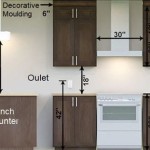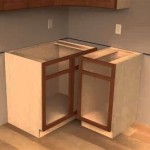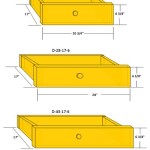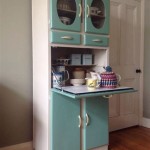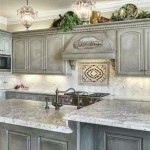Essential Aspects of Repainting Glazed Kitchen Cabinets
Revamping your kitchen cabinets with a fresh coat of paint can breathe new life into your space. However, repainting glazed kitchen cabinets requires specific steps and techniques to achieve optimal results. Here are the essential aspects to consider when tackling this project:
1. Surface Preparation
Thoroughly cleaning the cabinets is crucial for paint adhesion. Remove all dirt, grime, and grease with a degreasing cleaner. Use a sanding sponge or fine-grit sandpaper to lightly scuff the surface, creating a rough texture for the paint to grip onto.
2. Selecting the Right Paint
Not all paints are created equal for glazed surfaces. Choose a water-based latex paint specifically designed for glossy or glazed finishes. These paints contain additives that enhance adhesion and durability on nonporous surfaces.
Consider using an oil-based enamel paint for added toughness and resistance to moisture. However, note that oil-based paints have a stronger odor and require longer drying times.
3. Priming is Key
Applying a coat of primer before painting provides an essential barrier between the glazed surface and the paint. Primers improve paint adhesion, prevent tannin bleeding, and reduce the risk of chipping and peeling.
Use a high-quality primer specifically formulated for glazed surfaces. Allow the primer to dry completely before applying paint.
4. Multiple Thin Coats
Instead of applying one thick coat of paint, opt for several thin coats. Thin coats dry faster, minimize brush strokes, and allow the paint to penetrate the primer more effectively. Apply each coat in even, overlapping strokes.
5. Smooth Out the Finish
Once all the paint coats are dry, lightly sand the surface with fine-grit sandpaper or a sanding sponge. This smooths out any rough spots and creates a more professional-looking finish. Be gentle to avoid sanding through the paint or primer.
6. Protect the Finish
After sanding, apply a coat of polyurethane or clear sealant to protect the painted surface from wear and tear. This will enhance durability, prevent stains, and give the cabinets a glossy sheen or a matte finish, depending on your preference.
7. Consider Hiring a Professional
If you are not confident in your DIY skills or the cabinets have intricate details, consider hiring a professional painter. Experienced painters have the knowledge and equipment to ensure a flawless finish.
Repainting glazed kitchen cabinets requires careful preparation, primer, multiple thin coats, and protective sealant to achieve a durable and aesthetically pleasing result. By following these essential aspects, you can transform your kitchen into a stylish and inviting space.

Rescuing And Reviving A Glazed Distressed Kitchen Bella Tucker

How To Glaze Cabinets At Home With The Barkers

How To Glaze Cabinets At Home With The Barkers

How To Glaze Kitchen Cabinets Diyer S Guide Bob Vila

How To Glaze Cabinets At Home With The Barkers

Glazed Cabinets San Antonio Professional Cabinet Painters

Painting And Glazing Kitchen Cabinets

Lighter And Brighter Cream Kitchen Cabinets With Ppg Break Through

How To Remove Glaze From Your Kitchen Cabinets Top 3 Ways

How To Glaze Kitchen Cabinets Diyer S Guide Bob Vila
Related Posts

